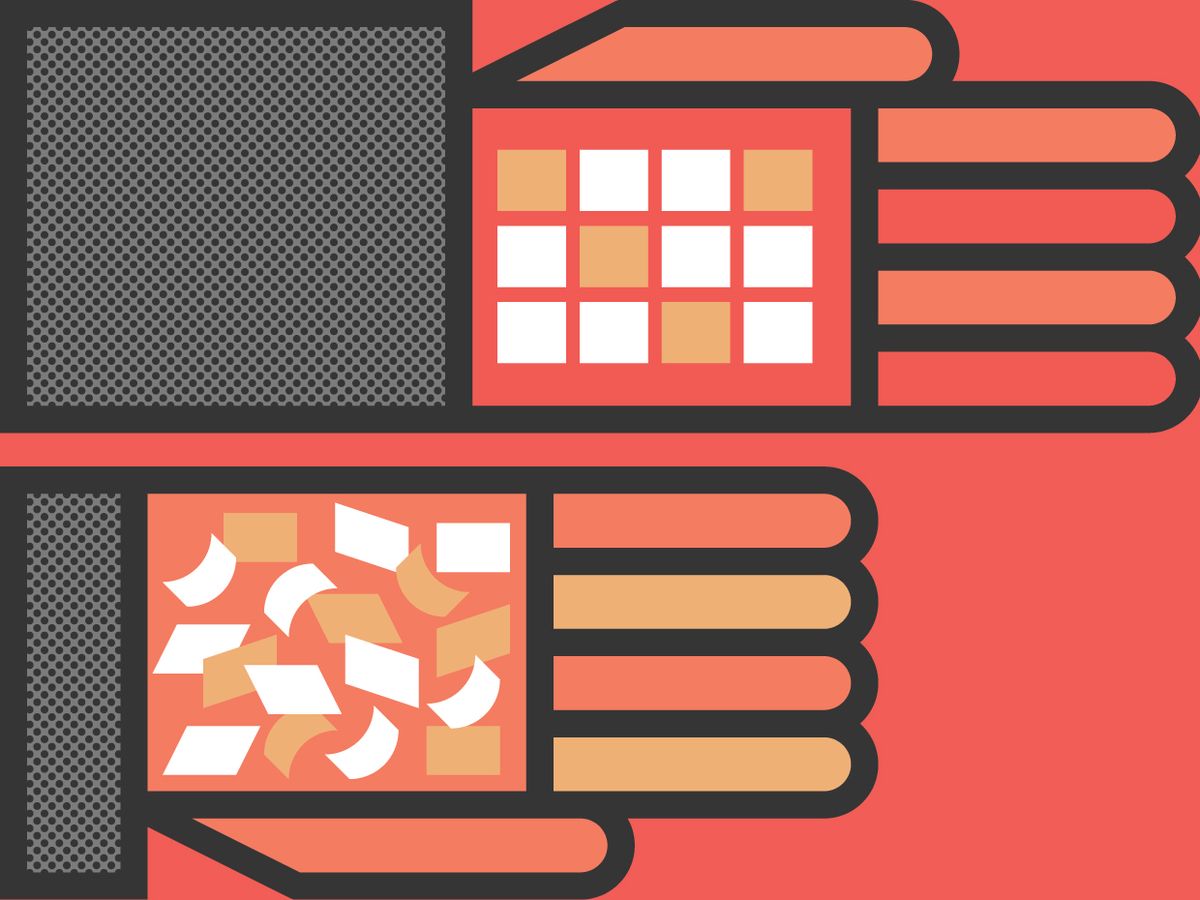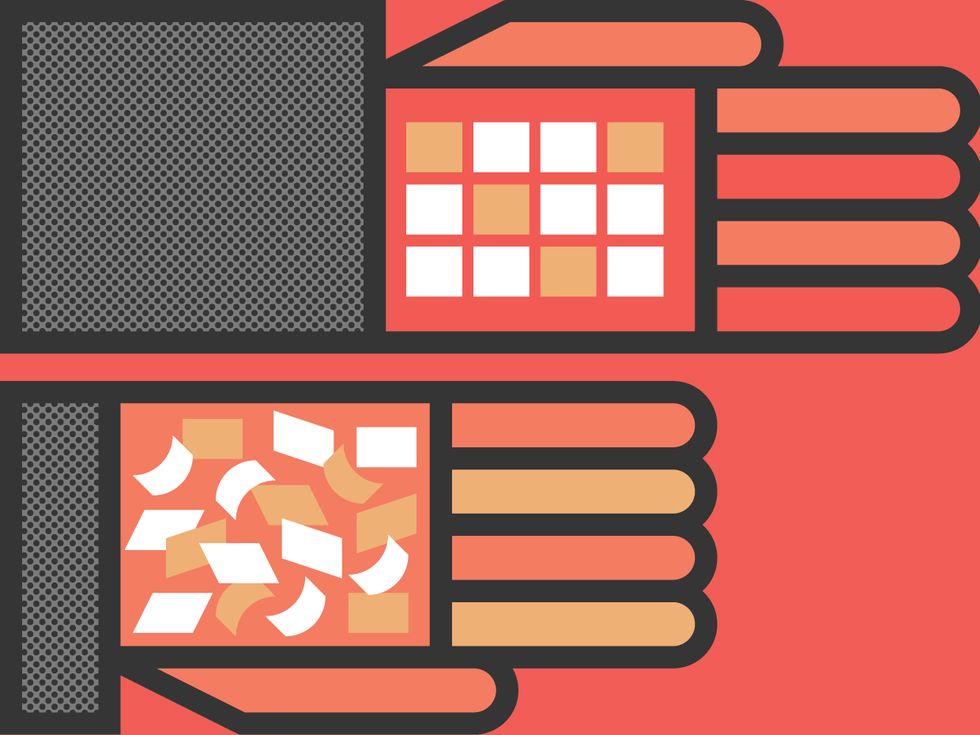Illinois vs. Dubai: Two Experiments Bring Blockchains to Government
Dubai wants one blockchain platform to rule them all, while Illinois will try anything


Governments everywhere would like to cut red tape, reduce bureaucracy, and speed the delivery of services. But constituents are still often frustrated by mounds of paperwork and the snail-like pace of official business. Could a blockchain help?
Just as blockchains have shaken up the financial industry and changed our perception of money, some government agencies now believe the technology could rejuvenate the public sector. Proponents argue that its immutability will protect records from fraudsters, its transparency will keep employees accountable, and its ability to automatically process new entries can make agencies more efficient.
Such promises have persuaded city, state, and federal governments to launch the first batch of public-sector blockchain experiments. Two of the most enthusiastic early adopters have been the U.S. state of Illinois and the city of Dubai in the United Arab Emirates. And intriguingly enough, the two have adopted very different strategies for mixing blockchains into government.
In Dubai, the city government is taking a highly centralized approach by building a single software platform through which agencies will launch many blockchain projects. In Illinois, the process is designed to be more experimental, with individual projects testing different types of blockchain platforms and applications to find the best fit for their particular needs.
Other government organizations may not be far behind. Mark Fisk, a partner in IBM Global Services Public Sector, has met with 35 U.S. federal agencies this year to talk about blockchains. Then in June, the General Services Administration, the procurement arm of the U.S. government, began to explore how the technology could hasten its review of new IT contracts.
Despite all the activity, nobody knows now whether blockchains can deliver meaningful results for public agencies. Blockchain development is still a nascent field. And governments are notoriously reluctant to invest in new technologies. Robert Charette, an expert in IT risk management, doubts blockchains will prove to be more effective than a simple cloud database in most cases. “It’s kind of like solving a problem that’s already been solved,” he argues.
Dubai begs to differ. The city government’s platform, which has not yet been built, will support both the public blockchain Ethereum and a distributed ledger code base called Fabric, created by the open-source project Hyperledger. This year, that platform will be the launchpad for dozens of government-sponsored blockchain projects. Officials say it will help the city government go paperless by 2020.
To kick things off, Smart Dubai, the government office leading the project, has asked 25 agencies to each begin a pilot before the end of 2017. The goal is for the best of those projects to move into production at some point next year.
Lina Hediah of ConsenSys, a blockchain consultancy working with Smart Dubai, says at least two projects will focus on real estate. The Dubai Land Department, for example, could use the platform to transfer property deeds or sign rental contracts. Similar projects are already under way in Sweden and the republic of Georgia.
If implemented in Dubai, a property deeds project would work like this: Whenever a property is purchased, the buyer and seller will record the transaction on one of the two blockchains sanctioned by Dubai. They’ll receive instant approval, so long as the deed is filled out properly and the buyer’s account has enough money to cover the sale. Once the transaction is complete, the blockchain will hold the official record. No one—not even government employees—can alter it.
Hediah believes Dubai’s decision to run all of its projects from a shared platform will make that platform more powerful as the city’s blockchain initiative grows. “The impact will be huge,” she insists. “When you apply a blockchain to so many services across so many sectors, there’s definitely going to be a jump in efficiency that nobody today can measure.”
Illinois, though, has a different idea. With help from the Illinois Department of Commerce and Economic Opportunity, the state is launching five separate blockchain pilots. Each project’s staff will select its own technology provider to develop a specific application without much regard for what the other four are doing.
Why the separate approaches? Blockchain companies are still figuring out how to program applications and smart contracts for public services, notes Jennifer O’Rourke of the Commerce and Economic Opportunity department. She argues that this multiblockchain strategy will help projects find the right solution.
The five Illinois pilots will use blockchains to handle property titles, academic transcripts, vital records, energy market credits, and state licenses for health care providers. O’Rourke expects to have them up and running by the end of this year.
For now, she’s not too concerned about how these pilots will work together, or whether the blockchain selected for one project can be easily integrated with others. Interoperability, she believes, will come over time as the technology matures. “Our approach is to not focus on one partner or one technology protocol but to explore all of them,” she says.
Will governments around the world end up regarding the projects in Illinois and Dubai as eye-openers or as black eyes? We’ll know in a year or two. In the best case scenario, blockchains will make some government transactions more secure and streamlined. The red tape won’t go away, but it just might be a little less sticky.
This article appears in the October 2017 print issue as “Govern by Blockchain.”